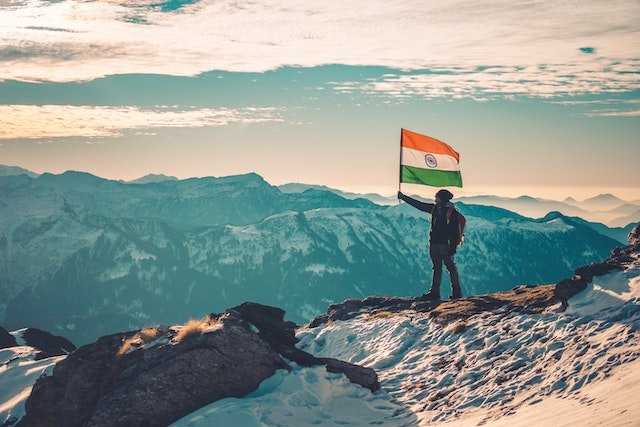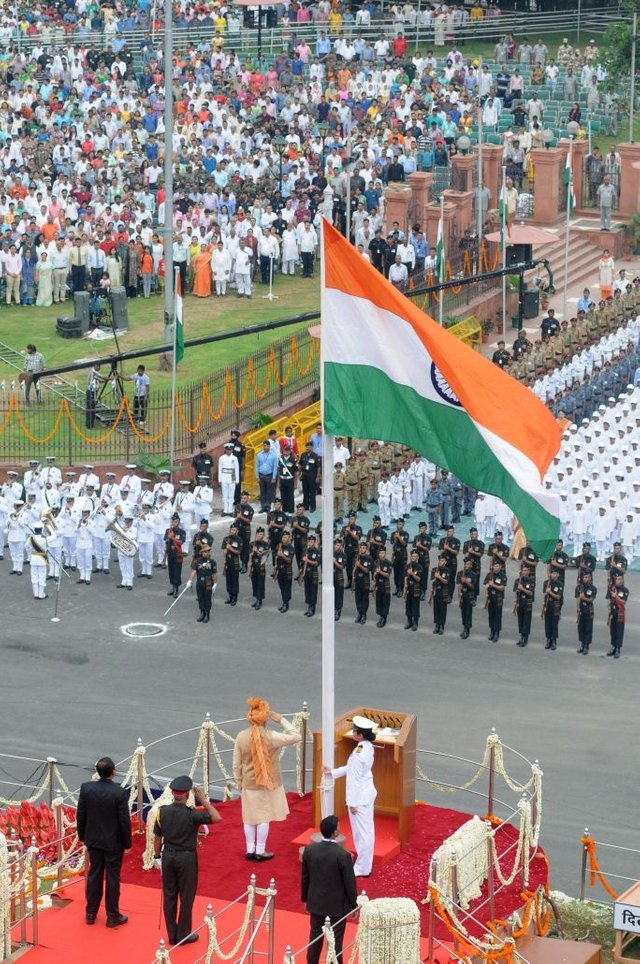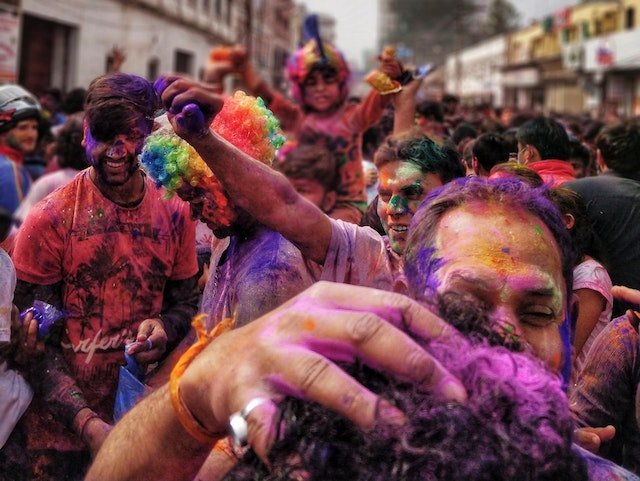Celebrating 74 Years as a republic: An Overview of the Economic and Political Landscape of India
As our nation celebrates its 74th Republic Day, we remember the sacrifices of our martyrs and honor the democratic values that have strengthened our nation. The Republic Day holiday is observed every year on January 26 to commemorate the adoption of the Indian Constitution. As a result of the adoption of the Constitution by the Constituent Assembly on 26 January 1950, India became a republic.

As we come together to celebrate the achievements of our past and the aspirations of the future, this is a day of national pride and unity. This is an occasion for us to reflect upon the principles of freedom, equality, and justice that have guided our nation since its inception, and to reaffirm our commitment to building a stronger, more inclusive, and more prosperous India for all.
There is a formal ceremony on the Rajpath in the national capital, New Delhi, where the President of India participates in a formal ceremony in the presence of many dignitaries and a large crowd.

In this parade, the Rashtrapati Bhavan is the starting point, and the India Gate is the destination. As part of the parade, there is a display of India's cultural and military heritage. Highlights of the parade include floats representing the various states of India, displaying their culture and traditions.
On this occasion, the President of India also addresses the nation and highlights its achievements. In addition, the Indian Armed Forces displayed tanks, missiles, and other military equipment in an impressive display, demonstrating their might and capabilities.
Aside from the parades in the capital, such celebrations are held throughout the country, including patriotic songs, cultural performances, and flag hoistings.
As the highest law of the land, the Constitution defines the rights and duties of citizens as well as the powers and responsibilities of the government of India. It outlines the framework for the country's governance. During the long and arduous process of drafting the Indian Constitution, many great leaders and thinkers contributed to its development.
Among all democratic countries in the world, India possesses the largest number of eligible voters, making it the world's largest democracy. In Indian politics, universal adult suffrage is used, which means that all citizens over the age of 18 have the right to vote regardless of their caste, religion, gender, or economic status.

A multi-party system is also prevalent in the Indian political system, in which several parties compete for power at the national and state levels. There are two major political parties in India: the Indian National Congress and the Bharatiya Janata Party. However, regional parties also have significant influence in some states of the country.
Among the fundamental rights guaranteed in the Indian constitution is the freedom of speech, religion, and press, as well as equality, life, and liberty. These rights are protected by an independent judiciary, and the country's supreme court serves as a check on the power of the executive and legislative branches of government.
For good reason, the 2020s have been dubbed the decade of India. Located in the midst of a new era of prosperity and growth, India is poised to become an important player on the world stage.
This is primarily due to India's demographic dividend. With over half of the population under the age of 25, it has a large pool of young professionals that are eager to learn, innovate, and succeed. Recent data indicate that many young Indians are beginning new businesses and developing innovative ideas, resulting in a boom in innovation and entrepreneurship.
A second important factor is the growing middle class. As more and more Indians enter the middle class, they consume a greater amount of goods and services, thus contributing to economic growth. The result has been an increase in consumer spending, which in turn has resulted in the creation of more jobs and greater economic prosperity.

The Indian government has also been implementing various reforms, including the Goods and Services Tax (GST), Make in India, Digital India, and other initiatives, that aim to improve business conditions and attract foreign investment. As a result, India has become an attractive investment destination for foreign investors, which has led to an increase in economic growth and an influx of capital.
India has also experienced rapid growth in the digital sector, with a growing number of Indians using the internet, smartphones, and other digital devices. By creating new jobs and driving economic growth, e-commerce and digital services have developed as a result.
Ultimately, India has entered a decade of prosperity and growth. It is well-positioned to become a global economic leader in the near future. India is well-positioned to become a major player in the global economy due to its young and highly educated workforce, thriving middle class, and committed government to economic reform.
Additionally, India's role in the world is expanding, and it is increasingly viewed as a key player in international affairs. The country's rapidly expanding economy and military power, combined with its strategic location, make it an important ally for many nations.
There is no better time than right now for Indians to be optimistic about the country's future, as the world looks to India as a leader in innovation, economic growth, and stability.
@cryptogecko
Thank you for sharing the history and significance of India's Republic Day. It is clear that this day holds great importance for the country and its citizens, and it is a time for celebration of national pride and unity, as well as reflection on the principles that guide the nation. The formal ceremony on Rajpath in New Delhi, along with parades and celebrations throughout the country, showcase the diverse culture and military heritage of India. The Indian Constitution, which was adopted on January 26th, 1950, is the highest law of the land and defines the rights and duties of citizens, as well as the powers and responsibilities of the government. India, as the world's largest democracy, is well-positioned to become a global economic leader, with a young and educated workforce, a growing middle class, and a commitment to economic reform. The country's expanding economy and military power, along with its strategic location, make it an important ally for many nations. It is a good time for India to be optimistic about its future.
We support quality posts, and good comments anywhere, with any tags.
Happy Republic Day
We would like to thank you for publishing your article in the Hind Whale Community community today. Based on our review of your article, we have come to the following conclusion:
Namaste 🙏
Nothing more to tell, great content once again. Thank for publishing Quality Content in our Hind Whale Community and we also respect 🙏 your hard work, and we want to thank you for the participation, 👍🏻 Best of Luck.
Regards,
@lavanyalakshman(Moderator)
Hind Whale Community
You have described the whole emotions with just your flow of writing. Although i haven't attended the Rajpath celebration which have now become the Kartavyapath for us ,was so mesmerizing.
And i still can't believe that inspite of that bad whether conditions our proud captain don't let anyone enthusiasm down and perform so well .
And reaming you have described very well once again thank you so much.
Stay blessed always sir
We support quality posts, and good comments anywhere, with any tags.